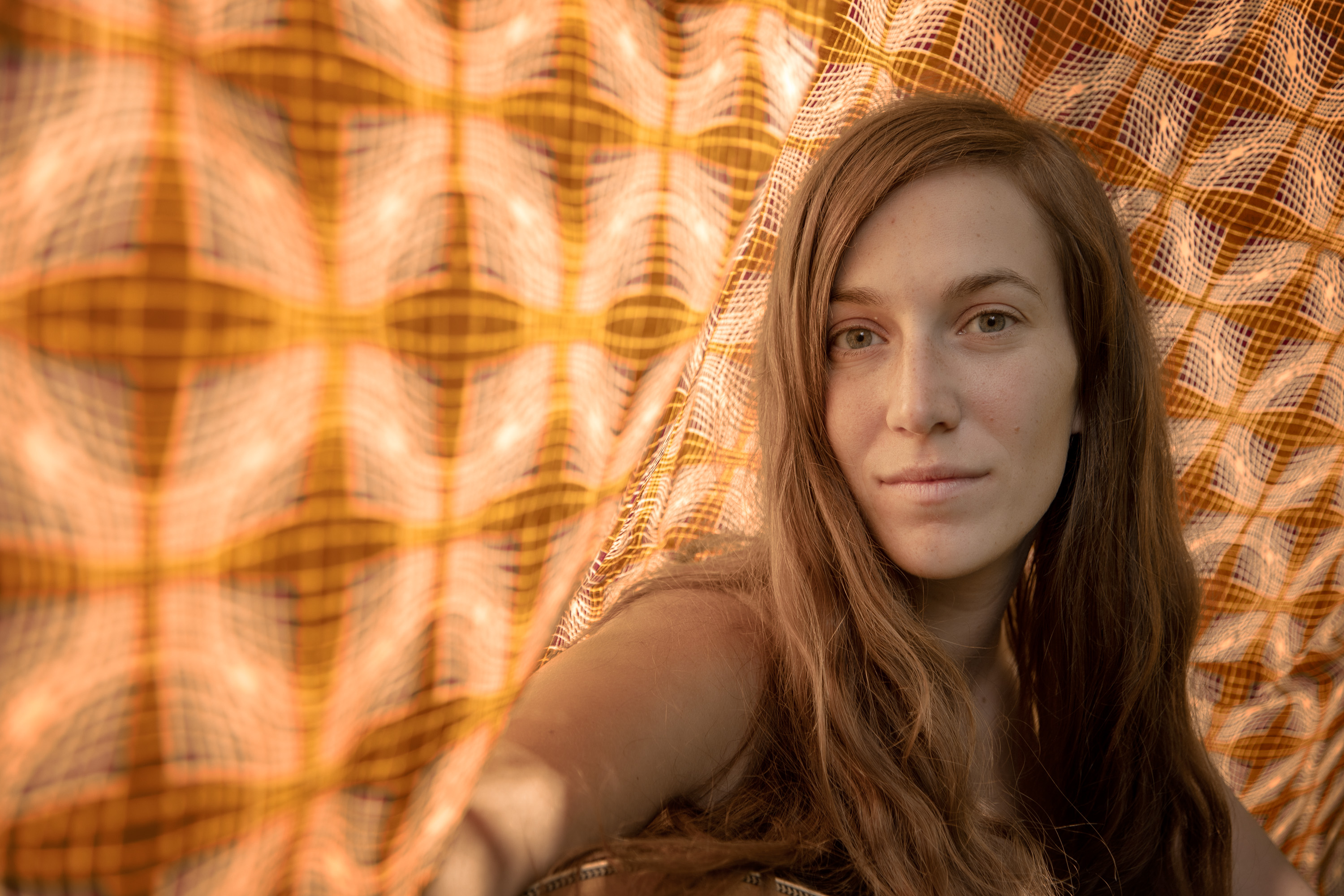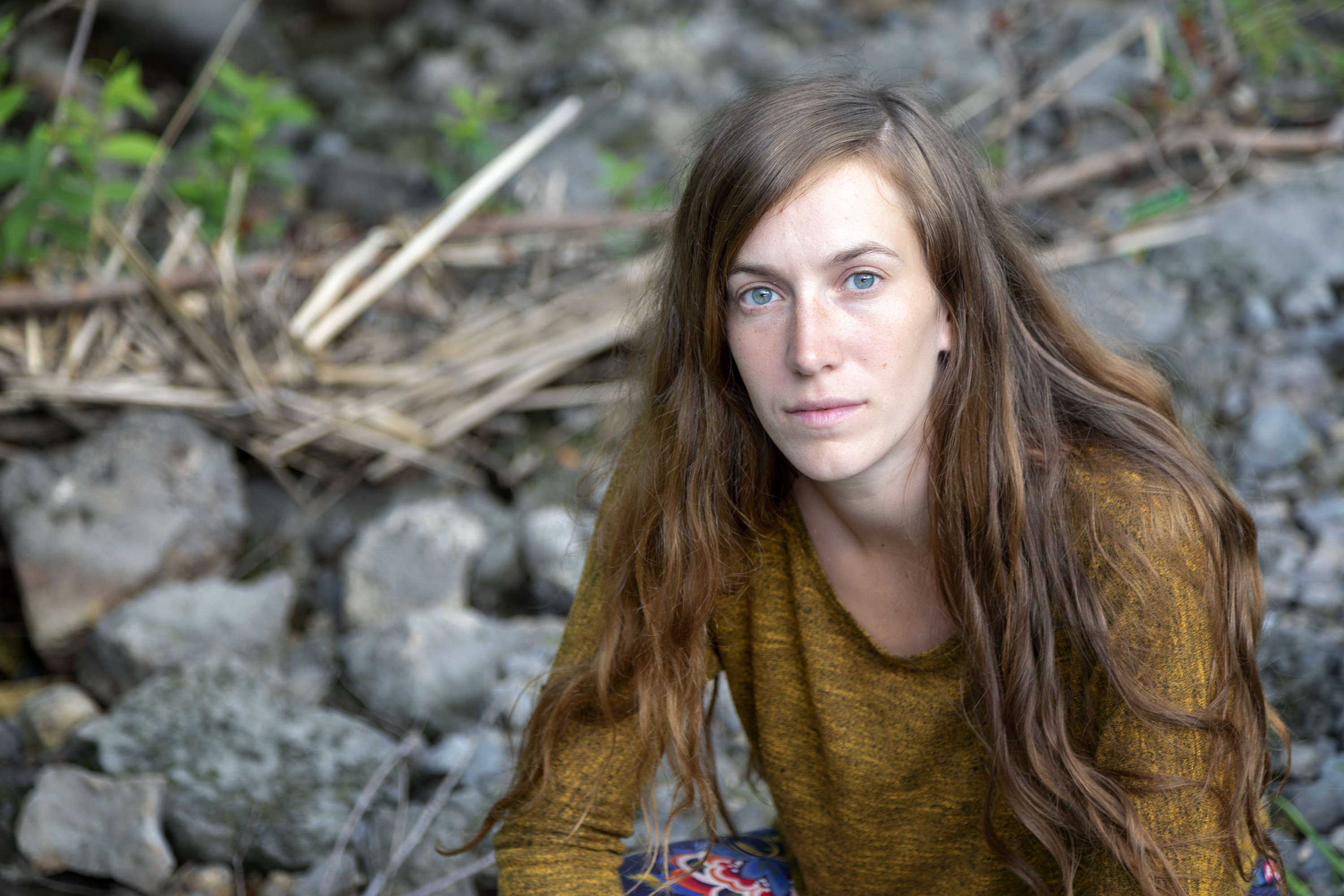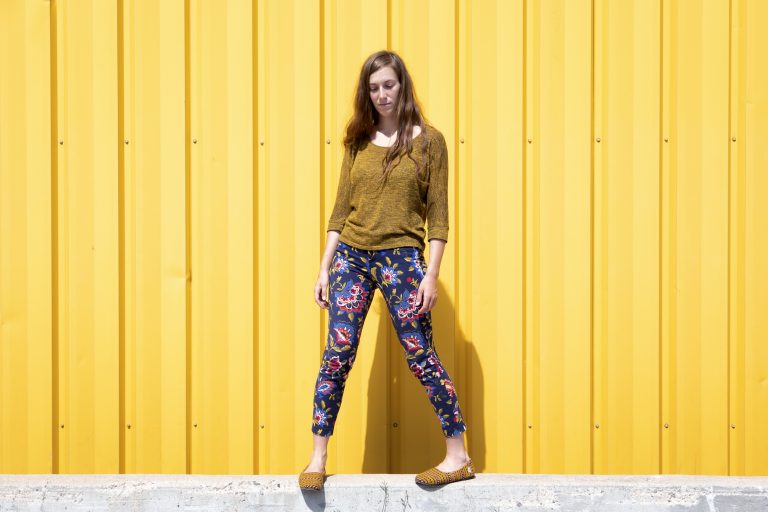This Friday, Winnipeg native Madeleine Roger brings her debut album tour to Victoria in support of Cottonwood, a wonderfully melodic, playful, and autumnal treat.
We were lucky enough to catch Madeleine before her Salt Spring Island debut for a conversation about gender parity, working with family, and the artistic inspiration she gets from mansplaining.

Dallas Ross: I listened to the album over the weekend and it really is beautiful. I’m kind of interested in how the whole thing got started and what the impudence was for Cottonwood.
Madeleine Roger: Well, the songs on it were written over the period of, I’d say, two and half years. I was in a project before with my twin brother called Roger Roger and some of the songs were ones that sort of developed under touring in that project and I just realized they needed to be released under the solo moniker.
Half of the songs were written at a remote cabin in the woods — which I totally recognize is a cliché — but the reality is that it’s so much easier to write when I’m in a dedicated space that’s removed from technology and the ability to communicate with other humans. It’s a little cabin out in the Whiteshell Provincial Park in Manitoba that my great grandparents built and, in the winter, not very many people go out to this lake. Sometimes there’s no one else out there at all. There’s no cell service or electricity or even running water, and it’s really a chance to be completely unplugged and focused on the writing. So, a lot of the songs were written out there and a healthy portion just from my home in Winnipeg, in the living room and the bedroom.
DR: Where do you draw your inspiration from? Is it from being alone, out in nature?
MR: I think it’s mostly from things that I observe, both within the natural world and how I see humans interacting with each other and with their place in the world, and the way that people tend to develop their understanding of themselves based on what’s around them and based on their relationships.
I’m really interested in human behaviours and the patterns that we make for ourselves, and I think a big part of that comes from having studied theatre for most of my life prior to deciding to become a songwriter. I really had dedicated my time to thinking about what people really are and why humans do the things that they do and why they behave in certain ways. I was focused on learning about that to be able to embody other people in a truthful way. Now it’s sort of taken on this more storytelling aspect.
And I just love nature so much. I find every leaf is a mystery and I love thinking about the timescale of the natural world.
DR: I noticed that, actually. In the title track, there is sort of this sense of taking a 30,000-foot view of time in terms of the life of that tree. So, it’s very interesting to hear that because it certainly comes through.
MR: *laughs* That’s cool to hear. I think I’m not really aware of my own perceptions because you just write what you know or what you think about.
DR: You mentioned earlier that you were in a project with your brother and I know that you worked with your father producing and engineering this album. What do you find about working with family? Does it make the process easier?
MR: I love it so much. I’m so fortunate to have such an amazing relationship with everyone in my family on a personal level but also in an artistic and collaborative sense. We really have complimentary views on how artistic collaboration should come together and we have really similar ideas on what the end product should look like.
I find that all of us, myself and my father and my brother when he’s in the mix, we have a very easy way of communicating our opinions and none of us take anything personally. So, it makes it really easy for everyone to have an opinion on the table and then we’re able to objectively look at them and see what the best option is for the purpose of the song or whatever part we’re creating.
I feel so lucky that it’s so easy to collaborate with my family. Everyone is so skilled because they’re all professionals. So, *laughs* it’s pretty lucky.
DR: No kidding.
Do you ever find that there’s creative butting of heads when working with your family because you have such a familial relationship with everyone that maybe you say things to them that you wouldn’t otherwise say to a different type of creative partner?
MR: It’s wild. You’d think that that might come up, but it honestly never has because we just respect each other so much.
I think in a lot of sense it’s because we’ve been steeped in a similar environment our entire lives. A lot of what we’ve consumed in terms of other music and other art, it’s all the same. And we have similar tastes in terms of what kind of music we like to listen to on our own time. So, most times, we’re actually finishing each other’s sentences.
My dad and I mixed the album together, and he’ll be like, “do you think the tom should be…?” and I’ll say, “yeah, we should totally turn it down a bit.” Without even having to finish the sentence, we know what the other person is about to say because it just makes sense.

DR: I was interested reading that it was important for you on this album to have gender parity on your production and performing teams. Why was that important to you?
MR: Yeah, it’s something I think about a lot. My whole life, I’ve been looking at the music industry and wondering why recording studios seem to be such a male dominated space. You don’t have to go further than opening the liner notes of most albums and it’s easy to see that it’s very male dominated and I have never really understood why that is.
I think for me, in a position of hiring, I want to put my money where my mouth is and collaborate with people in a way that is actually representative of the people who are going to be listening to the album. I feel like I wouldn’t be honoring my own values and beliefs if I didn’t try to work that way.
And, there’s always more we can do, right? There are a million avenues where equality is not being achieved and I’m sure I missed the mark on other points but I just really wanted to chip away on the piece of it that felt like it was within my reach.
DR: On that note, what advice would you give to someone like me who’s a white, cisgender male. Where can I be helpful?
MR: I think it’s really important to keep on lifting the minority and the voices who are not as easily heard or found or the people who are trying to get into this field and really have barriers in their way. Just support those people.
It can even be as simple as sharing things on your social media platforms. Like, “here’s this amazing person who’s doing this really cool thing.” Just lifting those people up. That’s all it’s about, when you find people who are really skilled and talented who might not otherwise get the chance to be heard. Like, spread the good word. *laughs* I think it can be that simple. Just make it normal.
DR: You’ve traveled quite a bit for the album already, in Ontario and the prairies and now the west coast. Do you find that the reception to the album is the same everywhere? And, have you learned anything about this country that maybe you didn’t know prior to going on tour?
MR: That’s a great question. People who have been getting in touch with me about their response to the album have all been positive. I’m sure that’s not always the case. I believe that any art that has merit has people who are for it and people who are against it. I hope that it says something bold enough that people will take a strong opinion about it.
But, I think that there’s just different attitudes across the country to how people talk about art. I don’t even know if I could put my finger on what the difference is. I think certain genres have more of a following in certain provinces, so you get people who are more used to the sound of this kind of album where as in other places it’s a little more unfamiliar. I don’t have any specific examples but maybe one area thinks that the album sounds more pop-oriented, where another area or province thinks it sounds really folky, whereas somewhere else may not hear it that way.
DR: It kind of goes back to what we were talking about earlier and analyzing people’s different perspective on things.
MR: Totally. And people’s exposure to ideas. Some people find some of the songs on the album to be super politically charged in a negative way and some people hear the songs and think, “Wow. This is perfectly aligned with my beliefs and I really relate to this song.” That’s been interesting, too.
Whether it’s feeling connected to a song or being offended by a song, that can really vary.
DR: To that end, a song like 60 Years More seems to have a very resonating message, especially now, but it also has a very tongue-in-cheek, mischievous sense of humour.
When you’re going to write a song with a political or social message, is the use of humour intentional? Do you find it’s a better delivery method?
MR: Yeah, I completely think that’s true.
That song in particular I actually started writing as a joke to myself because I had had a couple of really annoying encounters where I was really being mansplained to — I’m really glad that that’s a word now and we all know what that means — and I was just frustrated.
In my mind, it was this stupid little ditty, but then the whole song kind of wrote itself and I ended up basically sobbing on the couch because I realized I hadn’t fully recognized how effected I was by some of the realities.
I think that song has really helped some people with their own experiences and some people have been offended by it for whatever reason. I think, for me, it’s important to speak the truth that I have and whether or not people connect with it, that’s totally out of my control.
DR: Well, it really is a beautiful album and I’ve enjoyed playing it for my daughters. So, thank you for it.
MR: Yeah, you’re welcome. Thanks.
——
You can help Madeleine bring her debut album Cottonwood in Victoria this Friday, November 9, at Vinyl Envy.
You can stream Cottonwood in its entirety here.

